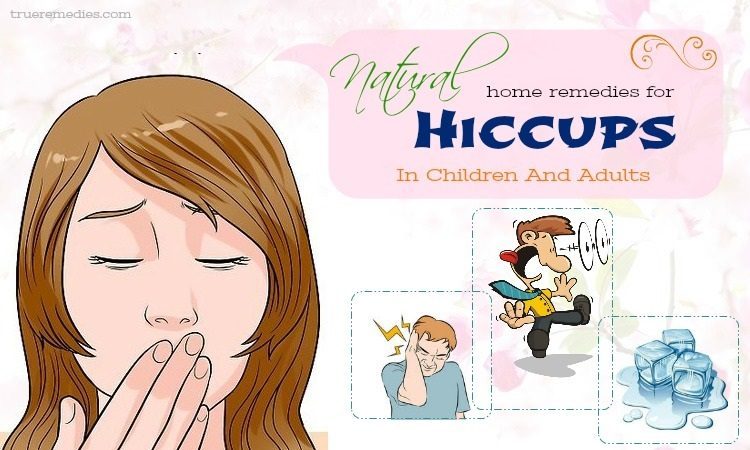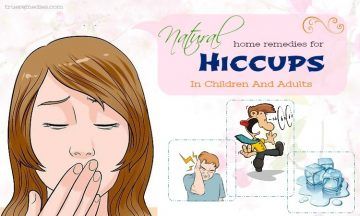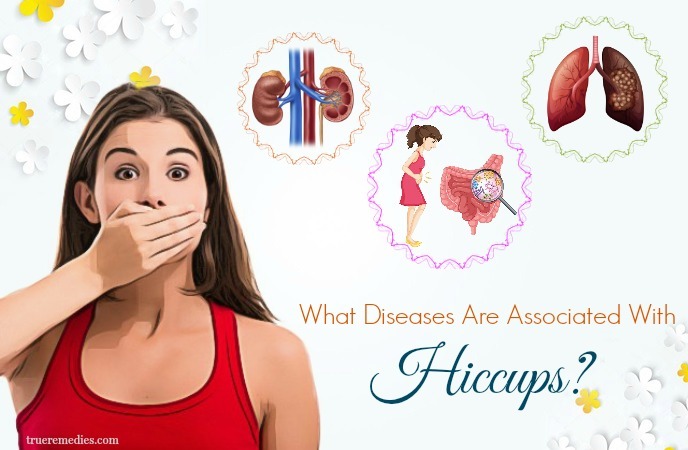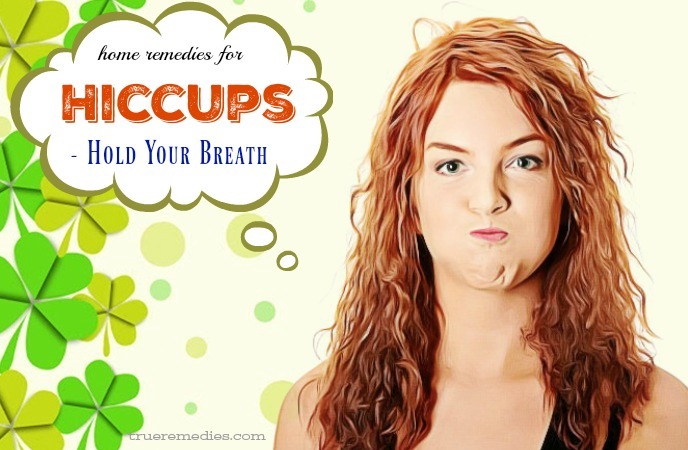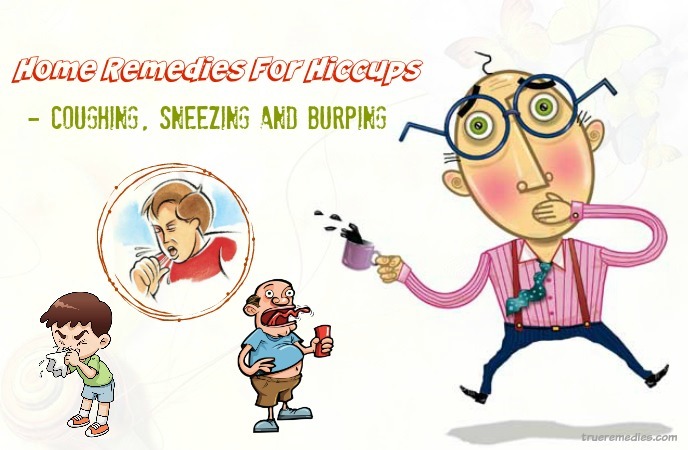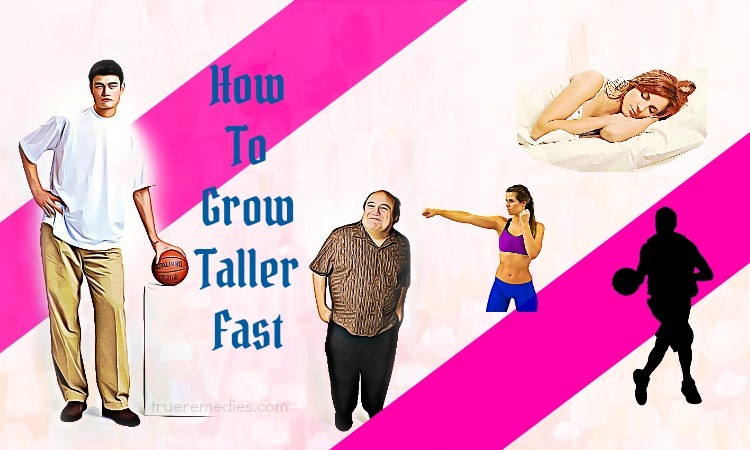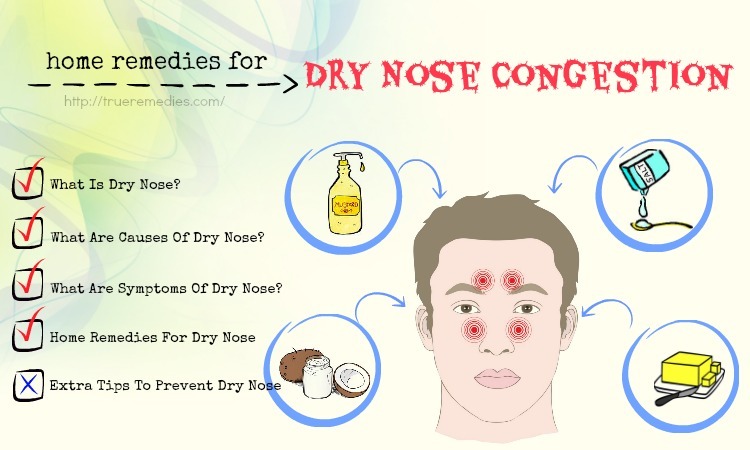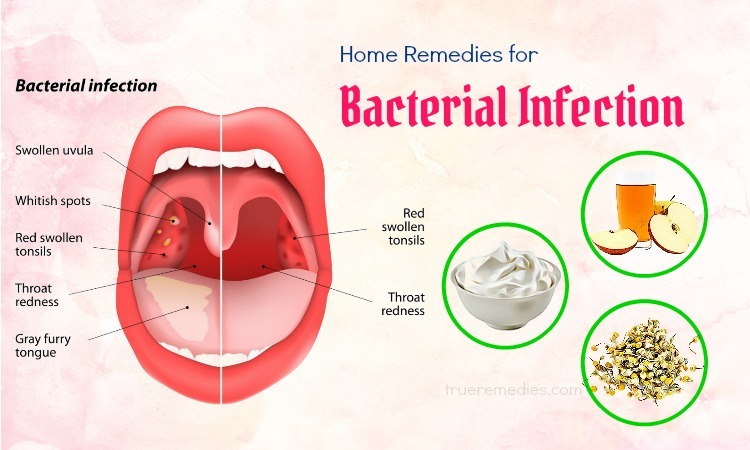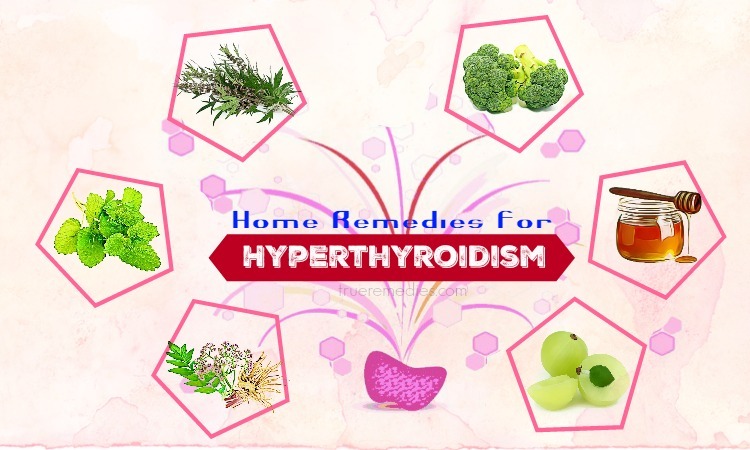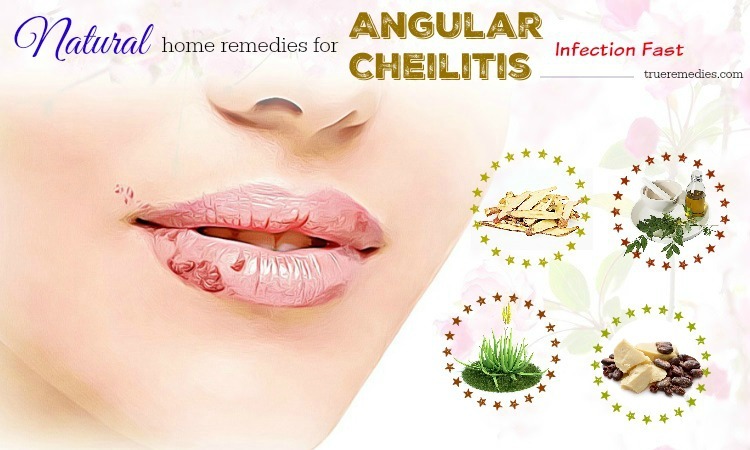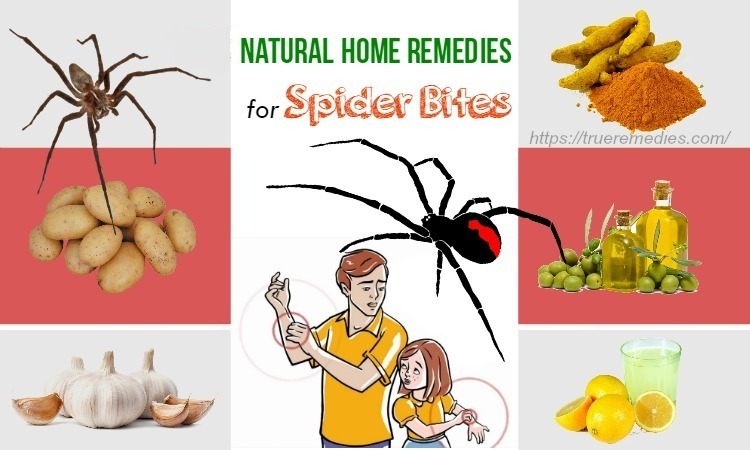Contents
Hiccups are an important reflex in the womb to prepare the respiratory muscles for immediate postnatal breathing. Infants get hiccups as soon as they are born and begin breathing. Hiccups are also reflexes of the gastrointestinal tract to prevent the inhalation of amniotic fluid or only to pass food through the esophagus. Hiccups can appear every hour and then self-disappear. However, there are people who hiccup one after another or continuously. Sometimes hiccups take weeks, months. Although hiccups do not seriously affect health, it makes people uncomfortable at work, causing obstacles in work and communication.
Therefore, the treatment of hiccups for adults should be done as soon as possible. This article will introduce the natural home remedies for hiccups. Applying them can give you amazing results. However, let's take a look at the basic information about hiccups first. This is important because it helps you to identify the cause of this disease as well as your current condition so that you can take measures to prevent or treat it appropriately.
What Is Hiccups?
Hiccups are a sudden, unconscious contraction of the diaphragm, which causes the throat bar (glottis) to be fastened and closed. This is the cause of a special noise called hiccups. Hiccups are a phenomenon in the body's natural response to stimulation of the vagus nerve, which transmits information from the abdomen to the brain. This is a situation that anyone can take at least several times.
A hiccup usually lasts only a few minutes, but it can last for hours or even 1-2 days, even years. If the hiccups only occur from a few minutes to less than 24 hours, this phenomenon usually does not affect health and does not require any intervention. But if it lasts more than 48 hours or periodic recurrence, hiccups are usually due to a disease. The frequency of hiccups varies from person to person, about 2-60 a minute [1].
What Are Common Cause Of Hiccups?
Hiccups are caused by the excitation of the diaphragm – a large muscle that separates the abdominal cavity and chest. Diaphragms are an important part of hiking. Nervous system has two parts: the central part is located in the brain, the peripheral part is the nerve that goes from the neck to the chest.
There are many cases of hiccups, but hiccups can be triggered by a number of specific events such as lack of water, overeating, hunger for long periods of time, cold drinks while eating hot food, eating spicy or spicy foods, laughing, coughing, drinking too much alcohol, crying (crying causes airflow to the abdomen), some smoking (cigarettes or some drugs such as heroin, morphine, and oxycodone), or lack of vitamins.
TrueRemedies Partner Solutions

Need a Help from the Leading Expert Online, Available 24/7?
They’re all here and ready to answer your questions online or by phone. Keep asking questions until you get the answer you need.
In addition, hiccups can be caused by the following causes:
- Stomach Stretch
Short hiccups, which last for less than 48 hours, usually appear when the stomach begins to expand after eating or drinking plenty of fluids. Alcoholic beverages have the ability to dilate the stomach and cause hiccups. Stomach instability affects the diaphragm and can interfere with its function.
- Temperature Changes Suddenly
A sudden temperature change, such as going out on a very cold day or eating/drinking very hot/cold things can cause hiccups. The mechanism of temperature change varies with the contraction of the diaphragm is unclear.
- Stress
The excitement, anxiety and stress may lead to short hiccups. Similar to the temperature change factor, the relationship between stress and hiccups remains unclear. However, stress can cause abnormal breathing, which is linked to the function of the diaphragm.
- Nerve Stimulation
Two important nerves, the vagus nerve and the phrenic nerve, regulate the contraction of the diaphragm. The stimulation of these nerves can cause hiccups that last more than 48 hours. Common culprits that lead to irritation may be a hair or something that touches the eardrum, sore throat, tumor in the neck, goiter or reflux.
- Surgery
Hiccups can also occur after gastric – duodenal surgery, liver surgery … Usually, it due to abdominal surgery, the stomach is dilated, causing hiccups. Other factors, such as anesthesia and endotracheal intubation, can irritate the throat, can also cause hiccups.
- Pregnant
Although there is little scientific evidence of the link between pregnancy and hiccup, many women have claimed they know they are pregnant with signs of hiccups. It may be due to the change of hormones and stress in pregnant women.
What Diseases Are Associated With Hiccups?
- Gastroenteritis
The hiccups are accompanied by nausea, diarrhea, muscle aches, cramps, and fever. You may have had a gastrointestinal infection with gastroenteritis.
- Digestive Disorders
Many hiccups accompanied by gastric distress, epigastric distress and periosteum, abdominal distension, loose stools are manifestations of gastrointestinal disturbances when the amount of food absorbed into the body is not digestible. In this case, you need to adjust your diet such as: do not drink carbonated drinks, soft drinks, eat lots of vegetables and reduce fried foods.
- Kidney Failure
Long and continuous hiccups are also a manifestation of renal failure due to the inability of the liver to filter and discharge urine. As kidney failure progresses, your body changes like swelling of the face and legs, pale skin due to anemia …
- Lung Cancer
Cancer cells that develop in the lungs can cause hiccups, accompanied by coughing, even coughing up blood, chest pain. Smokers who come in this condition should seek medical attention immediately for treatment.
- Meningitis
Staphylococcus, pneumococci, tuberculosis, viral may result in high fever, headaches, nausea, irregular heartbeat, etc. Examination of slow, stiff neck blood can lead to paralyze and mental disorders such as agitation or dysentery, and severe coma.
- Brain Tumors
When you have no fever but you see signs of a persistent headache, nausea and vomiting, and hiccups, you may have a brain tumor. It can also lead to hemiplegia.
- Urea In The Blood Increases
Blood urea increased in kidney failure, neuromuscular disorders, increased diaphragmatic stimulation.
- Pericarditis
Bacterial, tuberculous, pericardial effusion, pericarditis may also cause hiccup.
- Stroke
One of the most serious hiccups is the warning of stroke risk.
Some cases of stroke originating from the back of the brain are associated with hiccups. And accidents are more common with women. When the stroke is about to happen, patients often have hiccups and accompanied by chest pain, numbness, blurred vision. However, sometimes the hiccups are too heavy for the patient to notice other symptoms.
What Are Common Symptoms Of Hiccups?
Here are some symptoms of hiccups:
- Hiccups are sudden, unannounced and can occur at any age.
- Hiccups take place sequentially and produce a distinctive sound.
- Patients may feel tired and dizzy, depressed, insomnia …
Who Is At Risk Of Hiccups?
Everyone is at risk of hiccups. Anyone can experience hiccups several times in their lives.
Depending on the level of hiccups, the danger from hiccups to each person is different. Children are more prone to hiccup than adults because they do not focus on eating and chewing.
When To See A Doctor?
Consult your doctor about hiccup if you have hiccups over a period more than 48 hours with a severe hiccups symptoms and high frequency. In addition to hiccups, you also have other uncomfortable symptoms then you should go to the doctor to find out your condition of hiccups.
There, you have discovered some information about hiccups. To overcome this condition, many people come to see a doctor. However, if you want to prevent this condition, or your condition is not too severe, you can fully apply the home remedies we will mention below. With these home remedies for hiccups, you can do them at home. This is not time consuming but very effective. It is time to find out what the best home remedies for hiccups are. Take a look at TrueRemedies.com!
Home Remedies For Hiccups In Children And Adults
1. Drink Cold Water
Drinking water or rinsing the mouth can cause interruption of the hiccups triggers. Drink slowly and continuously to cure hiccups. You can add some warm honey into to reap more benefits to that drinks [2]
To implement this remedy, please follow these steps below:
- Prepare 1 cup of cold water.
- Divide and drink cold water into small sips.
- Swallowing slowly and each time separately.
2. Home Remedies For Hiccups – Hold Cold Ice In Your Mouth
Among home remedies for hiccups for adults, this is one of the most effective. Cold ice helps soothes the nerves that stimulate the hiccups then reduce the symptoms of hiccups [3].
The way to implement this remedy is very simple, you only need to hold a cold ice in your mouth for 4-5 minutes.
3. Hold Your Breath
This is another must-try home treatment in this list of home remedies for hiccups for adults. One of the oldest hiccups today is keeping the breath. This will force to eliminate the strain the diaphragm and prevent it from contracting because the diaphragm is the cause of the hiccup.
To implement this remedy, please follow these steps below:
- Take deep breaths and hold your breath as long as possible.
- Slowly exhale gradually and as long as possible.
Or you can do this remedy with another one. At this time, everyone holding hands the each other and do the hold the breath.
4. Startle
This remedy is one of little – known home remedies for hiccups for adults. Being startled by sudden threat, pounding on the shoulder … is also an effective way to cure hiccups. The sudden creation of a startle causing the fear to the victim that they forget the existence of the hiccup.
They way to implement this remedy is very simple, you only need to be scared by another one. Let’s try some horror films to reduce your hiccup symptoms.
5. Home Remedies For Hiccups -Place Your Finger Inside Your Ear
Using this method will help stimulate the nerves in the ear, as well as expand the ear. The fingers will irritate the ears causing the hiccups to disappear.
To implement this remedy, please follow these steps below:
- Place two index fingers inside your two ears.
- Bring your hand slightly up and down slowly.
- Then leave for 2 minutes and repeat this remedy the second time.
6. Breath In A Paper Bag
This is the next treatment in this list of home remedies for hiccups for adults. This way will increase your carbon dioxide in your bloodstream and cause the body to lose the hiccup because it has to focus on removing carbon dioxide from accumulation. This is also one of the good ways to cure hiccups immediately.
The way to implement this remedy is very simple, you only need to prepare a paper bag and then breath slowly in this paper bag until the symptoms of hiccups is disappeared.
7. Stick Out Tounge
This sounds strange when it comes to home remedies for hiccups for adults, but it works. This is a common trick used by singers and actors when they perform. It helps stimulate the vocal cords that open up to breathe more smoothly and stop the contractions causing hiccups.
The way to implement this remedy is very simple, you only need to stick out your tongue and hold for 1 minute. The symptoms of hiccups will reduce quickly.
8. Home Remedies For Hiccups -Impact On The Eyes
It is used to stimulate the optic nerve and temporarily forget the stimulus in the hiccups, thereby reducing the symptoms of the hiccups.
To implement this remedy, please follow these steps below:
- Close your eyes, using the index finger and the middle finger of your hands, gently on the eyeball.
- Do this for 2 minutes then rest for 30 seconds and do it second time for the best treatment.
9. Put Air To The Ear
This is also one of the little-known home remedies for hiccups for adults. This method works like the breath in a paper box remedy. This remedy reduces the stimulation of hiccups, thereby reducing the symptoms of hiccups.
To implement this remedy, please follow these steps below:
- Use your forefinger and thumb to squeeze the two nostrils, while closing your mouth, puffing your cheeks and squeezing the air into both ears.
- Repeat this for 2-3 seconds, then rest for 2-3 seconds and repeat about 15 -20 times
10. Impact On The Palm
This method has the effect of disturbing the nervous system and thereby reducing the symptoms of hiccups.
They way to implement this remedy is very simple, you only need to use your thumb to impact quickly on the palm of another hand.It is considered one of the easiest home remedies for hiccups for adults.
11. Coughing, Sneezing And Burping
Coughing, burping and sneezing makes the diaphragm shrink and then stop the hiccups. So if possible, create these reflections.
Method 1: Pepper
To implement this method, please follow these steps below:
- Prepare a pinch of pepper.
- Pour the pepper onto the palm of your right hand and place it near your nose.
- Slowly breathe until the pepper makes you sneeze.
This method will help to reduce the symptoms of hiccups quickly. Do it 3-4 times a day for the best treatment of hiccups in adults.
Method 2: Home Remedies For Hiccups Using Chili
The chili helps to stimulate the nerves causing sneezing, which can reduce the symptoms of hiccups.
To implement this method, please follow these steps below:
- Prepare a chili.
- Rinse the chili and then eat a little.
- Slowly chew the chili then swallow. Spicy chili will stimulate the disappearance of symptoms of hiccups.
Method 3: Chili Oil
Chili oil is naturally extracted from chili and is used in pharmaceutical preparations and the production of pepper spray. Chili oil is also sometimes prescribed to relieve nasal polyps and is safe to use, although it can cause minor pain when used. Since you only need to deal with a temporary sneeze, do not put chili oil directly into the nose as this will cause burning [4].
To implement this method, please follow these steps below:
- Prepare 1 ml of chili oil
- Pour the top of the cotton swab into the chili oil and smell the essential oil. You will definitely sneeze
Method 4: Carbonated Beverages
You just put the cup of water bubbling into the nose and smell. This method is not effective with non-effervescent drinking water because it has long been in the air. The taste and smell of drinking water will make the nose spit and sometimes cause sneezing
They way to implement this method is very simple, you only need to drink and leave the carbonated beverages in front of your nose.
Method 5: Stimulate The Nose
Use the deception of the nose defense mechanism by deliberately sending the wrong signal to the brain. To do this, you need to gently stimulate the nasal cavity. Inside the nostrils are very sensitive when stimulated, you can use paper towels to stimulate the nose, which causes sneezing.
To implement this method, please follow these steps below:
- Take the paper towel and twist it to form a spike. Put the tip of the nose into the nostril, twist and twist the paper towel to create a sense of smell.
- Do not stuff anything into the nostrils, even paper towels. Only inserting the tip of the nasal cavity is sufficient.
- Do not use hairpins or pointed tip things to stimulate the nose.
12. Home Remedies For Hiccups – Suddenly Look At The Light
Suddenly looking at the light will help stimulate the optic nerve, thereby reducing the stimulation of the hiccups to the body.
They way to implement this remedy is very simple, you only need to look at the light suddenly as a treatment of hiccups in adults. You can do this by stepping into the bright room, or closing your eyes and stepping out into the sun. This is reckoned one of the best home remedies for hiccups for adults.
Note: Do not look directly at the sun because it can damage your eyes.
13. Take A Deep Breath Of Cold Air
The next one in this of home remedies for hiccups for adults is taking a deep breath of cold air. Taking a deep breath of cold air will help stimulate the process of suppressing hiccups well. This will reduce the impact of hiccups on the body, causing the body to forget about the effects of hiccups and not react to it.
To implement this remedy, please follow these steps below:
- If it's not too cold outside, try putting your head in the fridge!
- Another way is to take a hot shower, then quickly head out to the water and breathe the cool air outside.
- Apply this method in the afternoon, when the body is in the best condition.
14. Mint Gum
For some people the strong mint smells go into your body and can make the body react to the mint. From there your body will not react to hiccups. For others, strong toothpaste has the same effect. Theoretically, the sudden cooling taste will stimulate the nose causing sneezing. Refreshing breath is a good way if all methods are unsuccessful.
To implement this method, please follow these steps:
- Use mint mints to chew
- Prepare 2 mints gummy mint
- Use 2 mints gummy to chew quickly
15. Home Remedies For Hiccups – Peanut Seed
This sounds strange when it comes to home remedies for hiccups for adults, but let us explain about its use. Eating peanut seed stimulates the nerve directly and makes you stop being hiccups immediately. Peanuts are rich in magnesium, which helps to nourish and soothe hiccups.
To implement this remedy, please follow these steps below:
- Prepare 3-4 grams peanut seed
- Rinse and then dry for 30 minutes.
- Crush peanut seed then mixes with 300 ml of water.
- Add sugar and stir well.
Use to drink before eating rice. It should be done 2 times a day to get the best effect.
The above-mentioned natural home remedies are claimed to be able to reduce symptoms of hiccup in adults. Despite the home remedies for hiccupes are quite time consuming, slow-acting, their results will not let you down. Choose and alternate some of them in your treating procedure to see how effective they are. If you have any contributing ideas about our article of “Top 19 Natural Home Remedies For Hiccups In Children and Adults” introduced in Home Remedies Category, do not hesitate to drop your words below this post. We will answer as soon as we could

